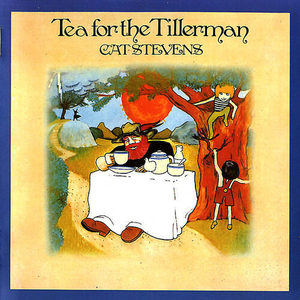
- 歌曲
- 时长
简介
Cat Stevens专辑介绍:《Tea For The Tillerman》(农夫的茶)是斯特文斯于1970年发行的个人第四张专辑,也是至今为止他整个演绎生涯中最经典的专辑,专辑里人与乐器甚至是合声的音量都是如此的均衡,充分地体现出了宇宙万物那种原有的平衡性,在所有的11首作品,没有任何你想要的所谓波澜的东西,只是一些邻家主厨男人做菜时偶尔会哼出的旋律罢了,也许你会这样想。这就对了,什么叫民谣?这就是民谣。 虽然斯特文斯出生于英国的首都伦敦,但是他的音乐里却有一种挥之不去的田园风光,如果有一天你去到英国某处的乡村,沿着两旁修剪得齐齐整整的松树间的小路行走,当走近坐落于山坡几处墙壁发红的家舍时,却突然发现斯特文斯从某间农舍里推门而出,那也不用意外,因为民谣歌手的另一种定义也正是像农夫种植植物一样种植着自己音乐,那里面可带有极浓的泥土气息。 这张专辑里最被后人传唱得无疑是《Wild World》和《Sad Lisa》两首作品,它们的意义也丝毫不会逊色于纽约民谣歌手Don McLean的《American Pie》、《Vincent》两首大作。《Wild World》最初听到的是Mr.Big的翻唱版本,已经被唱成了一首气势逼人的作品,在当时并没有觉得什么,但是到听斯特文斯的原唱时才发现Mr.Big原来是在对《Wild World》(狂野世界)这首歌进行毁灭性的破坏,狂野倒是狂野十足了,但是当狂野只流于形式时,它只会让人觉得野蛮,听我们的斯特文斯的演唱你就会觉得狂野未必就是吹胡子瞪眼,狂野也可以有一种温良的表达,说穿了,其实狂野也是一门独特的艺术。与这首歌相同经历的是,我听《Sad Lisa》(悲伤的莉莎)同样是先听齐豫的翻唱,齐豫的演唱更接近仙音,一种纯艺术的嗓音,被无限地拨到空中,当然也是一种听觉上的享受,不过我还是喜欢斯特文斯"脚踏实地"式的演唱,像是一个一百岁的老人在历经沧海桑田之后倾心的演唱,那呜咽的大提琴和不经意间于右侧声道敲出的琴弦声虽然都来自人间,可又仿佛是一种隔世的通灵物,差一步到天堂就是这样的感觉。 这张专辑在滚石杂志选出的500张历代最强专辑中排名第206位。 Mona Bone Jakon only began Cat Stevens' comeback. Seven months later, he returned with Tea for the Tillerman, an album in the same chamber-group style, employing the same musicians and producer, but with a far more confident tone. Mona Bone Jakon had been full of references to death, but Tea for the Tillerman was not about dying; it was about living in the modern world while rejecting it in favor of spiritual fulfillment. It began with a statement of purpose, "Where Do the Children Play?," in which Stevens questioned the value of technology and progress. "Wild World" found the singer being dumped by a girl, but making the novel suggestion that she should stay with him because she was incapable of handling things without him. "Sad Lisa" might have been about the same girl after she tried and failed to make her way; now, she seemed depressed to the point of psychosis. The rest of the album veered between two themes: the conflict between the young and the old, and religion as an answer to life's questions. Tea for the Tillerman was the story of a young man's search for spiritual meaning in a soulless class society he found abhorrent. He hadn't yet reached his destination, but he was confident he was going in the right direction, traveling at his own, unhurried pace. The album's rejection of contemporary life and its yearning for something more struck a chord with listeners in an era in which traditional verities had been shaken. It didn't hurt, of course, that Stevens had lost none of his ability to craft a catchy pop melody; the album may have been full of angst, but it wasn't hard to sing along to. As a result, Tea for the Tillerman became a big seller and, for the second time in four years, its creator became a pop star.







